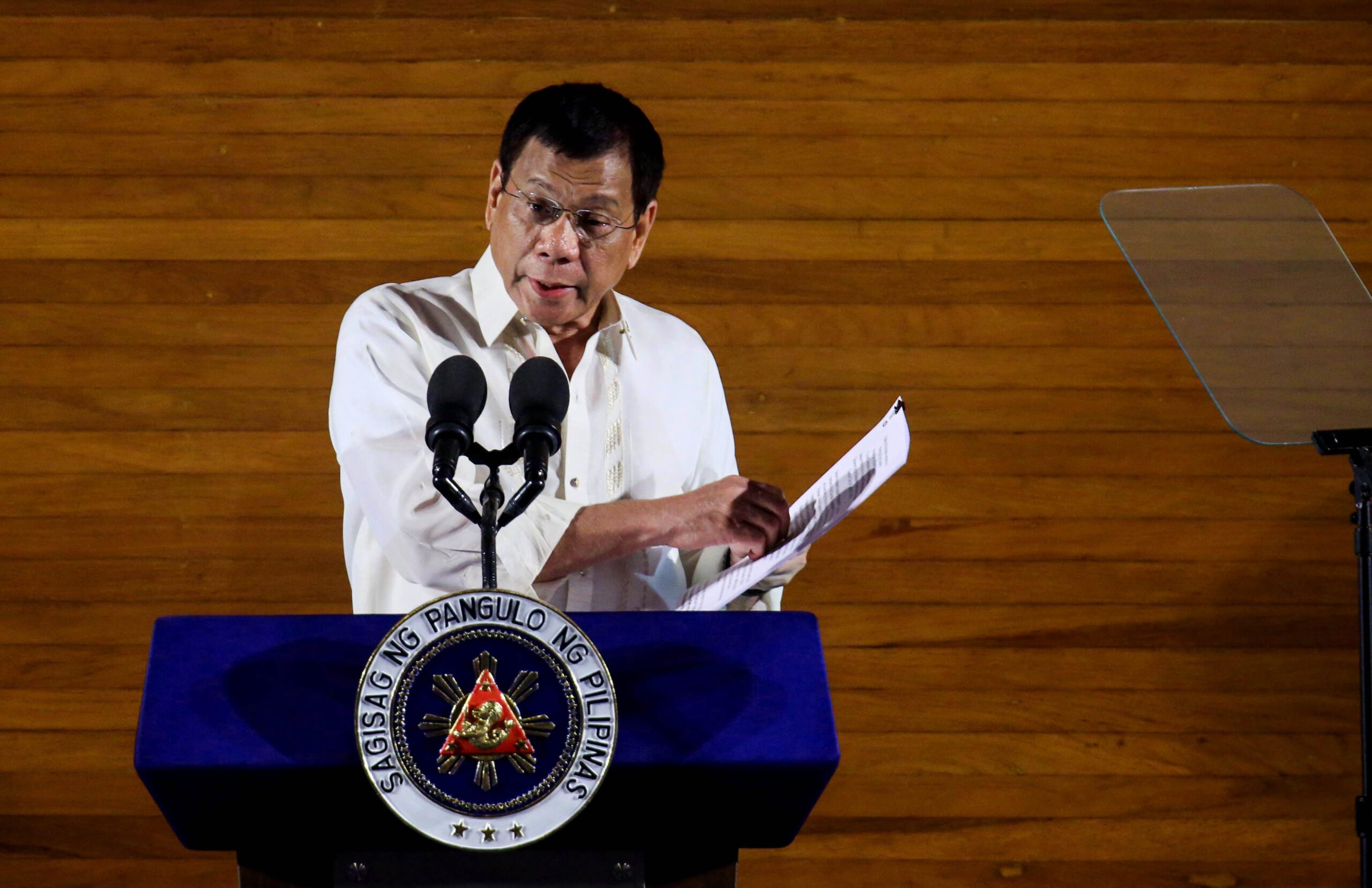SUMMARY
This is AI generated summarization, which may have errors. For context, always refer to the full article.

MANILA, Philippines – Several lawmakers opposed the preference of President Rodrigo Duterte to amend the 1987 Constitution through a Constituent Assembly, saying this is prone to abuse.
“A [Constituent] Assembly under a supermajority in both chambers of Congress is like having zombies to rewrite our Constitution,” said Akbayan Representative Tom Villarin on Friday, July 29.
“We want a democratic, deliberative, and inclusive process, not one that stifles opposition and dissent, which is what our Congress has now turned into,” he added.
Villarin was referring to the 251 members of the House supermajority. It is composed of 100 members of Duterte’s Partido Demokratiko Pilipino-Lakas ng Bayan (PDP-Laban) while the rest are from other parties that have coalesced with PDP-Laban. (READ: Constituent Assembly behind Suarez’s minority leadership?)
The President earlier favored a Constitutional Convention (Con-Con), a body separate from Congress elected through popular vote or through appointments, to shift to federalism.
But Speaker Pantaleon Alvarez revealed Thursday that Duterte now prefers a Constituent Assembly, wherein the incumbent Congress would turn itself into a body that amends the Constitution through a vote of 3/4 of all its members. This is because it is “cheaper and faster” than a Con-Con.
The House Makabayan bloc objected the Constituent Assembly as well, urging Alvarez to reconsider his stance on it.
The bloc includes Bayan Muna Representative Carlos Isagani Zarate, ACT Teachers Representatives Antonio Tinio and Francisca Castro, Gabriela Women’s Party Representatives Emmi de Jesus and Arlene Brosas, Anakpawis Representative Ariel Casilao, and Kabataan Representative Sarah Elago.
“Con-Ass (Constituent Assembly) will not be acceptable to the people as they perceive Congress to be dominated by political dynasties and fear that vested and self-serving interests would inevitably influence proposed changes to the Constitution,” said the Makabayan bloc.
“Makabayan is open to charter change if it will empower the poor, the oppressed and national minorities, enshrine national industrialization and genuine agrarian reform, and promote equitable distribution of wealth, through a mode acceptable to the people – but certainly not through constituent assembly,” they added.
Albay 1st District Representative Edcel Lagman claimed that Duterte’s new preference for a Constituent Assembly to shift to federalism is the reason behind the House supermajority’s “obsession” with controlling the minority bloc. (READ: Constituent Assembly reason behind Suarez’s minority leadership?)
Under federalism, the country will be divided into autonomous regions that will have primary responsibility over its laws, budget, development, industries, education, culture, infrastructure, and culture. (READ: How many states should PH have under federalism?)
The national government will be left to take care of matters with national and international bearing.
Duterte has long championed federalism as a way to decentralize power and wealth away from “imperial” Manila. (READ: Will federalism address PH woes? Pros and cons of making the shift)
‘Congress just makes proposals’
House Majority Leader Rudy Fariñas defended the Constituent Assembly on Friday. “How can there be any abuse when all the Congress can do is to make proposals?” he told Rappler in a text message.
Fariñas said the Constituent Assembly’s proposed amendments will only mature into a valid proposal after going through “open and full debates” in several committee meetings.
The proposed amendments would also be debated upon on the plenary hall floor at the Batasang Pambansa, with both senators and representatives sitting together.
Fariñas also pointed out that the 1987 Constitution mandates that constitutional amendments will only be finalized after a majority of registered voters approve them in a plebiscite.
“Whatever final output the Congress will make, such proposals will be submitted to the people in a plebiscite called for that purpose. Hence, the people will obviously reject any proposal that is the product of abuse,” said Fariñas. – Rappler.com
Add a comment
How does this make you feel?
There are no comments yet. Add your comment to start the conversation.